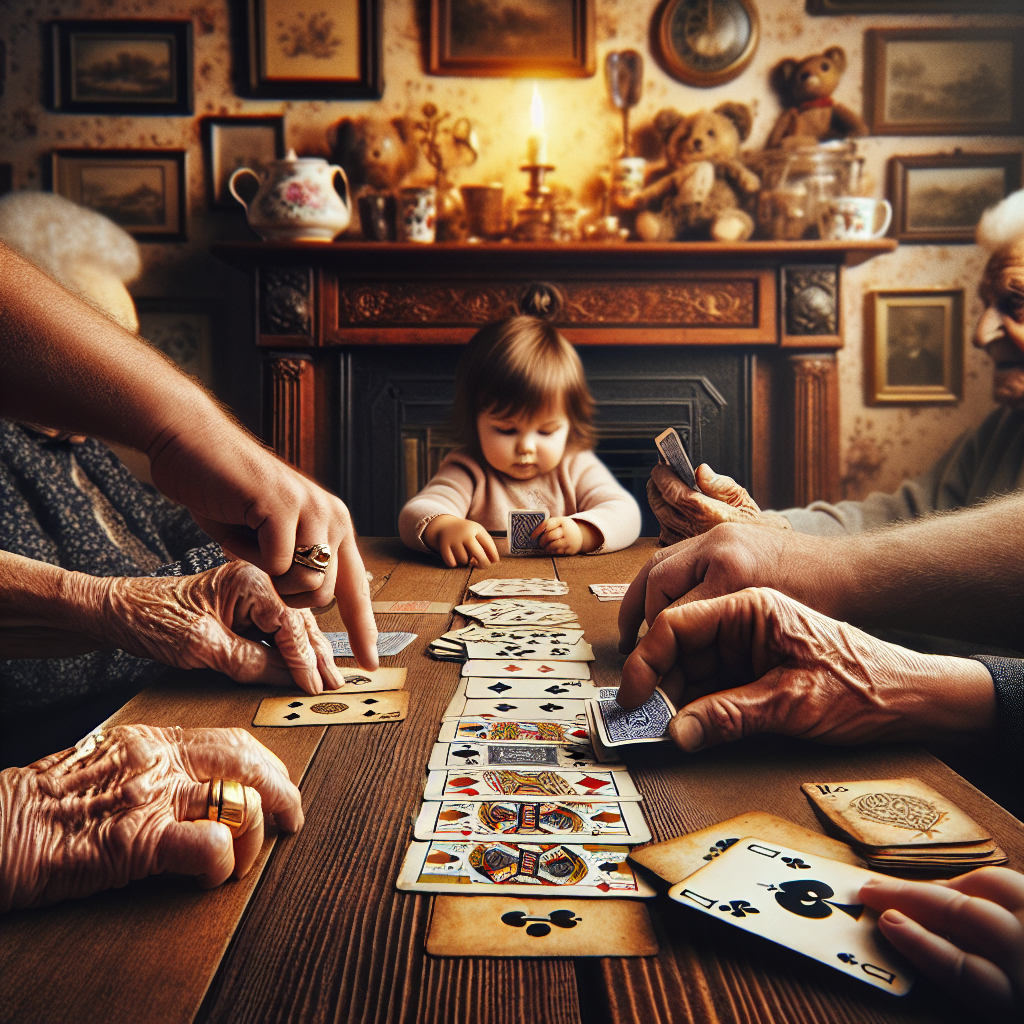Bridging Generations: How Card Games Connect Us to Our Past
In an age of digital entertainment and rapid technological advancement, the humble card game stands as a testament to the enduring power of face-to-face interaction and intergenerational bonding. While video games and online platforms dominate the leisure landscape, card games have remained a beloved pastime for many. These games not only entertain but also serve as a bridge connecting us to our past, revealing stories and traditions that resonate across generations.
A Link to Tradition
Card games have a rich history that spans cultures and centuries. From the intricate games of strategy like Bridge and Poker to the more casual play of Uno or Crazy Eights, these games are deeply woven into the fabric of family gatherings, community events, and social interactions. Each deck of cards carries with it a lineage, echoing the laughter and camaraderie of those who played before us.
For many families, gathering around the table for a game of cards is a cherished tradition. Grandparents pass down their strategies and tricks of the trade to grandchildren, while parents share their fond memories of learning the games from their own parents. This transfer of knowledge is more than just teaching the rules; it is an opportunity to instill values such as patience, perseverance, and sportsmanship.
The Stories Behind the Games
Each card game has its own unique set of rules and styles, often each with a story that can vary from one region or family to another. Take, for instance, the game of Rummy. The game’s evolution—from its origins in the early 19th century to various modern interpretations—mirrors the changes in society and culture. Engaging in such games sparks conversations about familial history, oftentimes unearthing tales of ancestors and their lives.
Playing these games creates a narrative that connects participants not just with the game itself but with the history behind it. Family members often reminisce about the times they played together, sharing stories about festive gatherings or long summer nights where games turned into epic battles of wits. This storytelling aspect reinforces familial bonds and nurtures a sense of belonging to something larger than oneself.
Building Bridges Through Interaction
Card games also create an environment of interaction that is increasingly rare in our tech-focused world. The tactile experience of shuffling cards, the anticipation before laying down a winning hand, and the energetic exchanges as players strategize and bluff their way to victory promote social engagement.
Unlike digital games, which often encourage solitary play or vague interactions through screens, traditional card games require players to be present with one another. This presence fosters empathy, communication, and connection—skills that can sometimes wither in the face of modern distractions. Young and old alike learn to read facial expressions and body language, essential tools for building meaningful relationships.
Lessons in Strategy and Resilience
Card games are not merely about chance; they entail strategy and teamwork, fostering analytical skills in young players. Whether it’s calculating probabilities in a Poker game or strategizing with partners in Bridge, children who grow up playing card games develop critical thinking and problem-solving abilities that benefit them in all areas of life.
Moreover, these games often involve losing as much as winning. Embracing defeat is an essential lesson imparted through card games; it teaches humility, resilience, and the importance of trying again. This invaluable life skill, learned at the family table, prepares young players for the challenges they will face in the great game of life.
Conclusion
Card games are more than just a way to pass the time—they are a bridge between generations, connecting us to our shared histories and fostering relationships across age gaps. In an era where screens often isolate us, the simple act of gathering around a table with friends and family, cards in hand, reminds us of the joy of togetherness.
As we shuffle the decks and deal the cards, we are not just playing a game; we are engaging in a ritual that honors the past, strengthens our present relationships, and builds a legacy for the future. Whether enjoying a classic game of Poker with friends or teaching a child how to play Go Fish, card games help us create lasting memories that span generations—truly a timeless connection to our roots.




